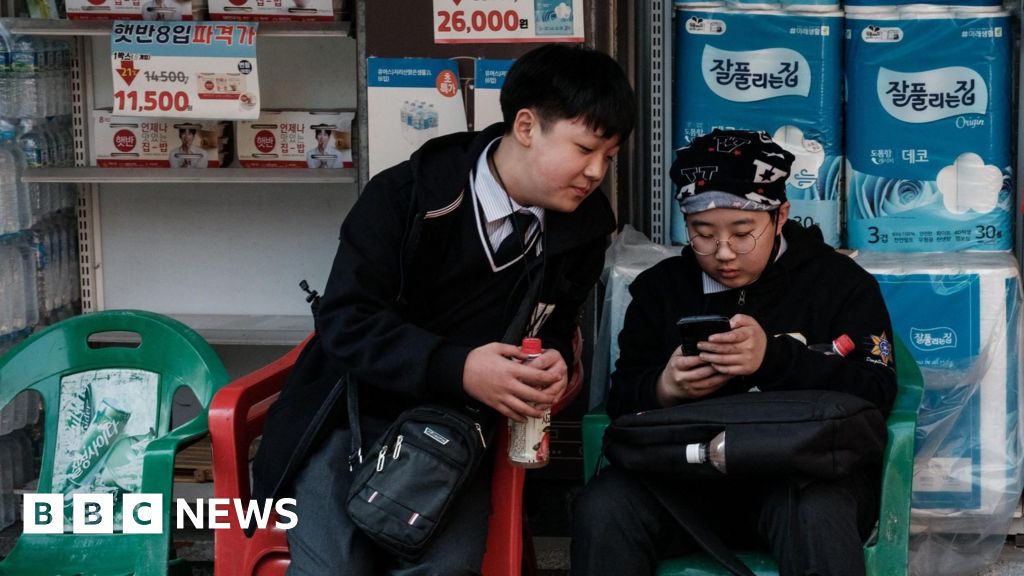South Korea has passed a bill banning the use of mobile phones and smart devices during class hours in schools - becoming the latest country to restrict phone use among children and teens.
The law, which comes into effect from the next school year in March 2026, is the result of a bi-partisan effort to curb smartphone addiction, as more research points to its harmful effects.
Lawmakers, parents, and teachers argue that smartphone use is affecting students' academic performance and takes away time they could have spent studying.
The ban has its sceptics, including students, who question how it would work, its wider implications, and whether it is addressing the root cause of addiction.
The bill passed convincingly on Wednesday afternoon, with 115 votes in favour out of 163 members present.
Most South Korean schools have already implemented some form of a smartphone ban. And they are not the first to do so. Some countries like Finland and France have banned phones on a smaller scale, applying the restriction only to schools for younger children. Others like Italy, the Netherlands, and China have restricted phone use in all schools.
But South Korea is among the few to enshrine such a ban in law.
Children these days just can't seem to put their smartphones down, says Choi Eun-young, mother of a 14-year-old in Seoul.
According to a 2024 government survey, nearly a quarter of the country's 51 million people depend on their phones too much. But that’s more than doubles - to 43% - for those between the ages of 10 and 19. This number has been rising over the years.
More than a third of teens also report struggling to control the amount of time they spend scrolling through videos on social media, which parents fear is interfering with their productivity.
Some parents worry about the potential for bullying on social media, where kids throw around unthinkably harsh insults at each other.
Cho Jung-hun, an MP from the opposition People Power Party who introduced the bill, has stated that there is significant scientific and medical proof that smartphone addiction is extremely harmful to students' brain development and emotional growth.
While it only bans phone use during class hours, the law empowers teachers to prevent students from using their devices on school premises and seeks to educate them on responsible phone use.
Some exemptions in the law cater to students with disabilities or special needs, allowing for the use of assistive devices and for educational purposes during emergencies.
However, teachers are divided on the ban, with some expressing concern that it infringes on students' rights. A large percentage of teachers report classroom disruptions due to smartphone distractions, which can lead to confrontational situations.
“Rather than simply confiscating phones, I think the first step should be teaching students what they can do without them,” says Seo Min-joon, an 18-year-old high schooler. “Banning them during class hours doesn't achieve much because students would still use them during other times.”



















